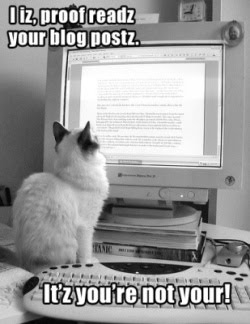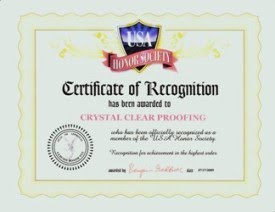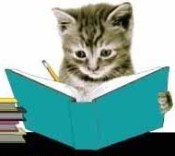
Several words in our language can be spelled as one word or as two, depending on its meaning. Below is a list of a few such words, with sample sentences on how they are used.
Almost - all mostThe plane was
almost (nearly) three hours late.
We are
all most pleased (all very much pleased) with the new schedule.
Already - all readyThe order had
already (previously) been shipped.
The order is
all ready (all prepared) to be shipped.
Altogether - all togetherHe is
altogether (entirely) too lazy to be a success.
The papers are
all together (all in a group) on your desk.
Always - all waysShe has
always (at all times) done good work.
We have tried in
all ways (by all methods) to keep our employees satisfied.
Anytime - any timeCome see us
anytime you are in town, (one word meaning "whenever").
Did you have dealings with him at
any time in the past? (Two words after a preposition such as
at.)
Anyway - any wayAnyway (in any case), we can't spare him now.
If we can help in
any way (by any method), please let us know.
Awhile - a whileOne word as an adverb; two words as a noun.You may have to wait
awhile. (Adverb.)
You may have to wait for
a while. (Noun; object of
for.)
Everyday - every dayYou'll soon master the
everyday (ordinary or daily) routine of the job.
He has called
every day (each day) this week.
Into - in toHe walked
into the outer office. (
Into implies entry.)
He came
in to see me. (
In is part of the verb phrase
came in;
to is part of the infinitive
to see.)
Indifferent - in differentShe was
indifferent (not caring one way or the other) to the offer.
He like our idea, but he wanted it expressed
in different (in other) words.
Maybe - may beMaybe is an adverb;
may be is a verb.
If we don't receive a letter from them today,
maybe (an adverb meaning
perhaps) we should call.
He
may be (a verb) out of town next week.
Onto - on toHe lost control of the car and drove
onto the sidewalk. (
Onto implies movement toward and then over.)
Let's go
on to the next problem. (
On is an adverb in the verb phrase
go on;
to is a preposition.)
Someday - some dayPlease set up a meeting with them
someday next week.
Please set up a meeting with them for
some day next week. (Two words when used as the object of a preposition such as
for.)
Sometime - some timeThe order will be shipped
sometime (at some unspecified time) next week.
It took me
some time (a period of time) to complete the job.
Whoever - who everWhoever (anyone who) is elected secretary should write that letter at once.
Who ever made such a statement? (
Ever is an adverb.)
At times you'll find two words spelled as one, and the resulting one word is not a word at all, (a good example is
alot). Our language has many such situations, rules, and exceptions to rules. This is why many people feel intimidated and frustrated by
grammar.
Source: The Gregg Reference Manual








































































































